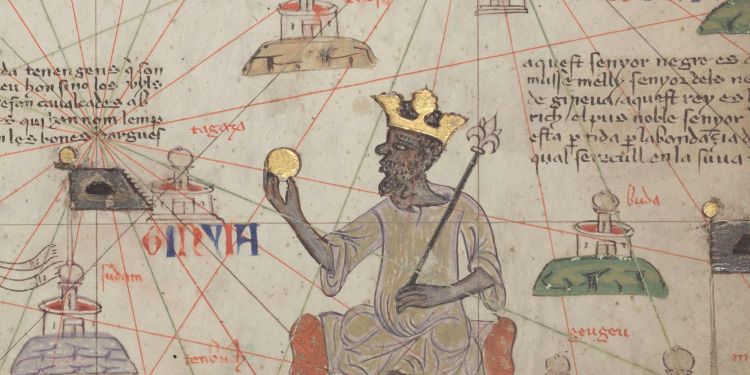
In the beginning, when the cosmos sang its first fire and the rivers bore the voice of the ancestors, the Manding people were given a script — a sacred design of signs and breath. This script, Komo Kafuya (᚛Kòmò Káfùyá᚜ in Mandingo), was not merely for trade or governance, but a channel to preserve the ancestral covenant. It is whispered that Masaba, the First Black Smith, hammered not only iron into form but also words into eternal shape.
For in Mandingo, the word kàbá means “to enclose, to shape, to form.” Just as the iron bellows shape fire into weapon, the script shapes breath into memory. The Ancestors tell us:
“Masaba dá kán tɛ̀ — Masaba has given us the script to bind time and the spirit.”
The ancient Manding script was more than symbol. It was rhythm, vibration, and geometry. Its forms mirrored the cosmos — the circle of life, the spiral of destiny, the crossing lines of earth and sky. In Mandingo tongue, the sign sòro (speech) and ké (to make) fused into the living act of inscription: sòro ké — the making of speech.
As the ways of the ancestors are not the work of chance nor accident. It was covenantal technology, where iron, fire, and word became one. The Mandingo script was carried across rivers, inscribed on wood, stone, and even the skin of drums. With every mark, the presence of Masaba resounded.
“Kɔrɔfɔ Masaba, kɛ̀nɛ mùgà — The ancient Masaba, healer of metal, guardian of fire.”
In West Africa, scripts were guardians of identity. The Mandingo script, older than foreign alphabets imposed upon the people, bore testimony to the originality of African thought. It stood against silence, declaring: Nye sòro tè kùmà — My voice shall not be erased.
The geometry of the Mandingo signs — verticals, horizontals, and sacred diagonals — reflected cosmic order. Just as the iron staff of the blacksmith stands upright in ritual ground, so too did each glyph anchor itself in the soil of being.
The script was not forgotten, even when chains dragged sons and daughters across the waters. For within memory, within song, and within the forge, the spirit of the script endured. It whispered to griots, it echoed in initiation groves, it burned in the hands of blacksmiths who, invoking Masaba, never ceased to strike the rhythm of freedom.
Thus I proclaim:
“Mandingo kafuya bɛ sèbɛ — The Mandingo script is sacred.”
“Masaba sòro tè lù — Masaba’s word never dies.”
The revival of this script today is not simply academic. It is spiritual restitution. To study it is to re-enter covenant with Masaba, to strike once more the anvil of memory. It is to remember that Africa was literate before invaders, that Africa’s word is older than conquest.
I close with the sacred Mandingo blessing:
“Kɔfɛ̀ Masaba, sòro tè fɔ — Honor to Masaba, whose word is eternal.”